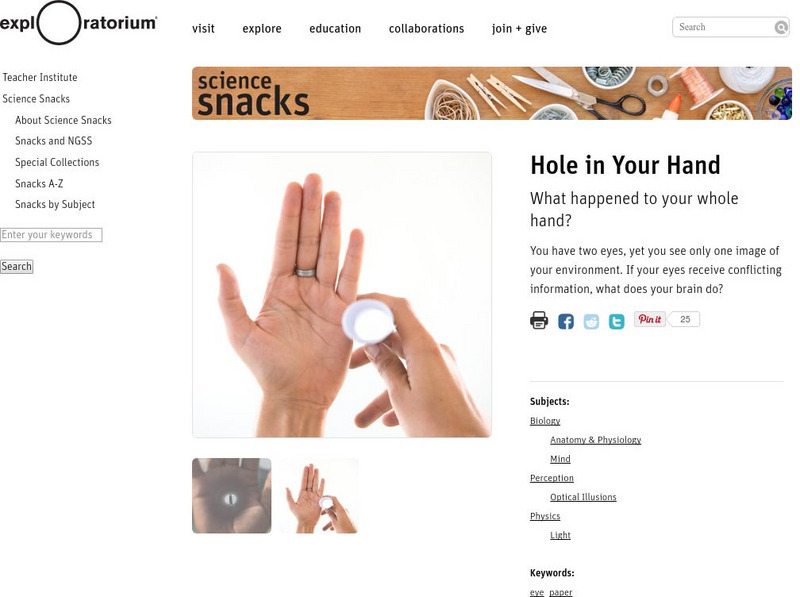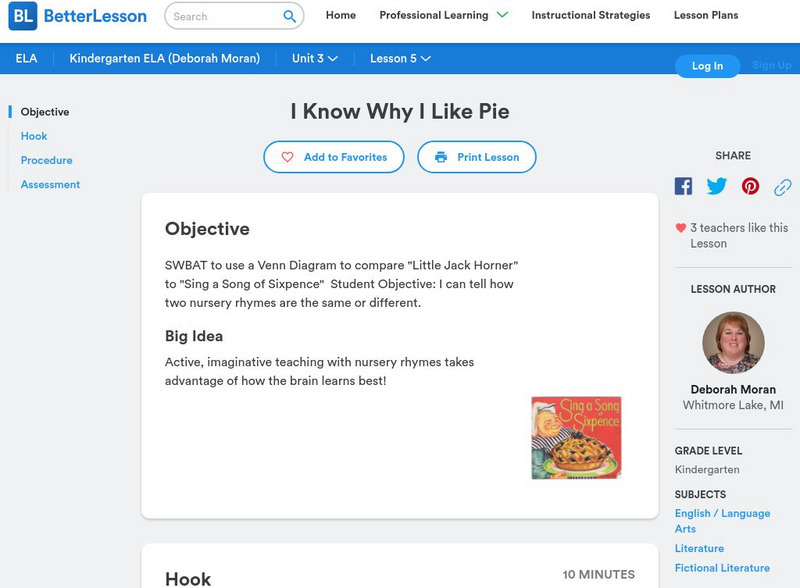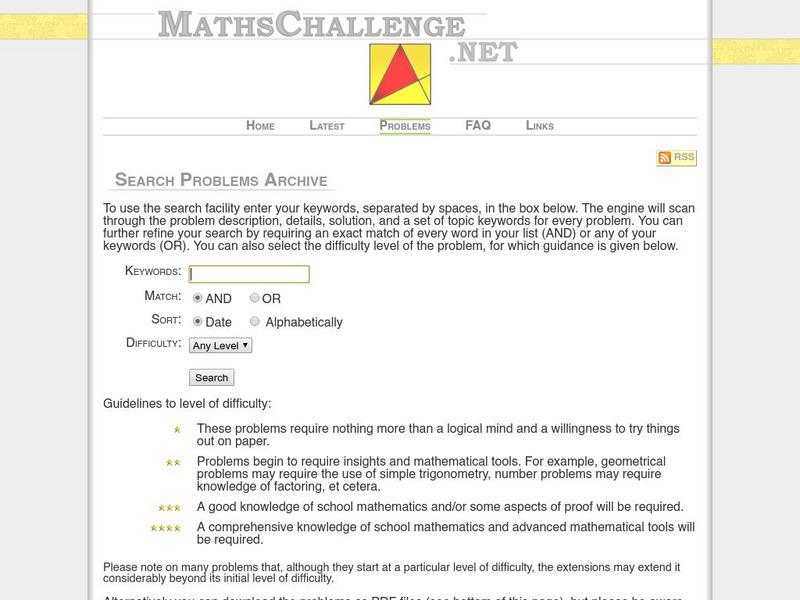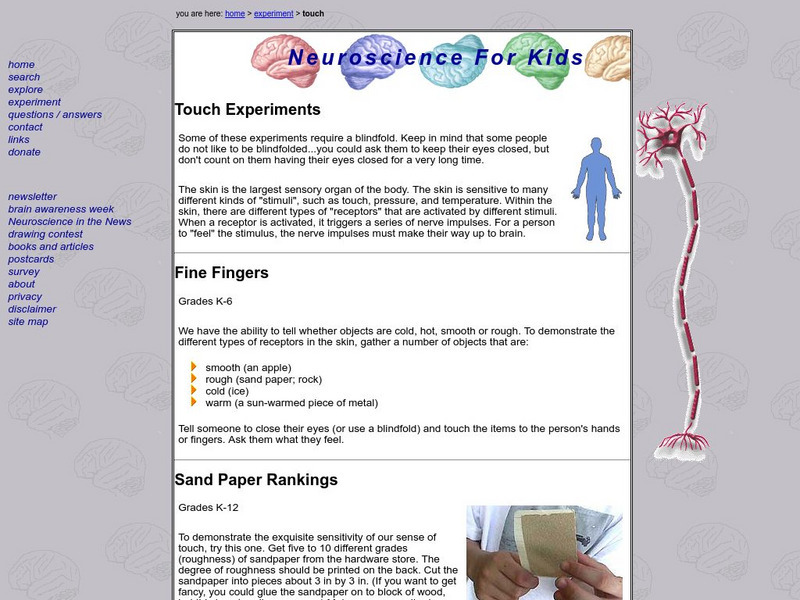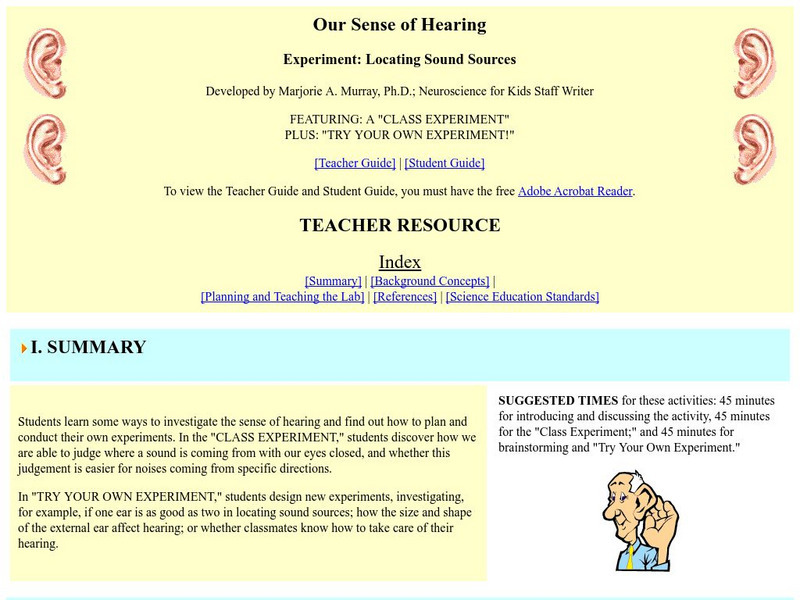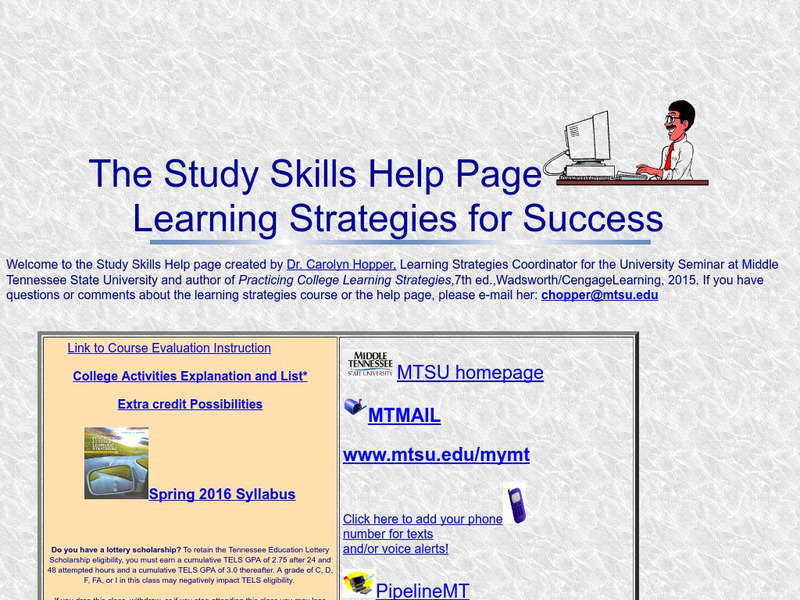Hi, what do you want to do?
Exploratorium
Exploratorium: Science Snacks: Hole in Your Hand
Create an optical illusion with this activity. Understand what your brain interprets if it receives conflicting information from your eyes.
Curated OER
Kids Health: Eyes
Your eyes see, but how does vision happen? Find out how the eyes and brain work together through this video and accompanying activity guide. [6:09]
Other
Community Resources for Science: Seeing Is Believing?
This lesson plan focuses on the parts of our bodies that we use to see and how the brain actually causes changes in what we see. Specific instructions and talking points are provided along with multiple activities for the students to...
Better Lesson
Better Lesson: I Know Why I Like Pie
Active, imaginative teaching with nursery rhymes takes advantage of how the brain learns best! In this lesson plan, students will use a Venn Diagram to compare "Little Jack Horner" to "Sing a Song of Sixpence"
University of Washington
Neuroscience for Kids: Worksheets
This university site contains lessons, games and worksheets that are ready to print out.
Maths Challenge
Maths challenge.net: Problem Solving Database
Need some challenging problem-solving work for your students in the following areas: Discrete, Geometry, Numbers, and Code Breaking? This is the place for an enormous database of problems aimed at high school age students. They are...
University of Washington
University of Washington: The Senses Touch
Do you know what the largest sensory organ of the body is? Use this site on skin and its sense of touch to learn more.
University of Washington
Our Sense of Hearing Experiment: Locating Sound Sources
Have you ever wondered how your ear works? This website will provide you with knowledge on how to locate sound sources among other ear information.
Other
Middle Tennessee State University: Study Skills Help Page
The Study Skills Help Page offers many learning strategies for success. The website is based on a college course - it has a wide variety of online learning resources such as study skills course objective, notes, and practice tests/games.
Other
Effective Decoding Instruction for Diverse Learners
How can you implement effective decoding instruction for diverse learners in your classroom? This site focuses on phonemic awareness, alphabetic principle, morphology, and the six basic types of syllables in the English language.
Other
Science Hobbyist
This is a fun site filled with odds and ends of science. Wacky and amazing. Fun site to browse for ideas.
Scholastic
Scholastic: Novels for Growing Readers
Come and check out this informative resource featuring novels for growing readers. This site lists several appropriate books for students ranging from grades three through six.
ClassFlow
Class Flow: Annie and the Wild Animals Project
[Free Registration/Login Required] This lesson contains pre- and post-reading activities for Jan Brett's Annie and the Wild Animals. Students identify setting and animal characters from the story and learn about Scandinavia (where the...
Wikimedia
Wikipedia: Electroencephalogram
This Wikipedia Encyclopedia entry provides a brief explanation of an electroencephalogram test, (EEG). Includes information on the EEG's discovery and use.
Treehut
Suzy's World: Eye
Find out how your eyes work and try an experiment involving a cartoon flip book.
Treehut
Suzy's World: Touch
At this site find out how you can feel hot and cold and try this experiment using your sensory nerves.





